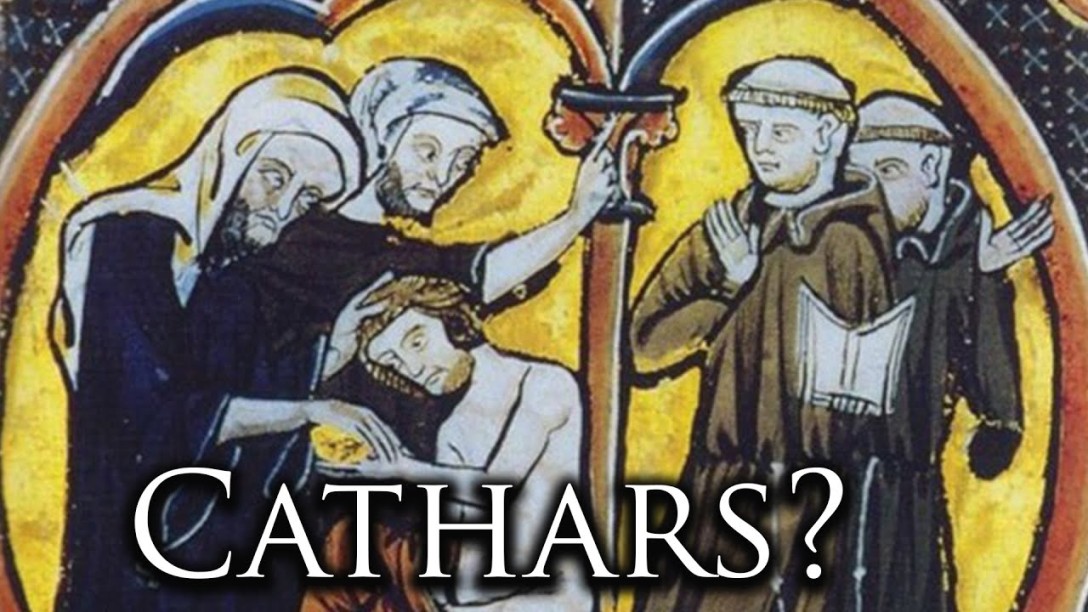In this video we discuss the famous medieval "heretics" known as the Cathars, and the Albigensian crusade which tried to wipe them out. https://www.youtube.com/watch?v=ySrpKMlhG2c Sources/Suggested Reading: Barber, Malcolm, The Cathars: Dualist heretics in Languedoc in the High Middle Ages, Second edition (Harlow, United Kingdom: Pearson, 2013). Sennis, Antonio (ed.), Cathars in Question (York: York Medieval… Continue lendo “Who were the Cathars?” – Filip Holm | Let’s Talk Religion ▶️
Tag: Dualism
Good as ‘privatio malum’: Cioran’s gnostic atheodicy, face-off with De Maistre | Anathemas & Admirations (1987)
The problem of Evil actually troubles only a few sensitive souls, a few skeptics, repelled by the way in which the believer comes to terms with it or spirits it away. Hence it is to these that theodicies are primarily addressed, attempts to humanize God, frantic acrobatics that collapse and compromise themselves on this ground,… Continue lendo Good as ‘privatio malum’: Cioran’s gnostic atheodicy, face-off with De Maistre | Anathemas & Admirations (1987)
“The Evil Demiurge: the most useful god who ever was” – CIORAN
It is difficult, it is impossible to believe that the Good Lord—“Our Father”—had a hand in the scandal of creation. Everything suggests that He took no part in it, that it proceeds from a god without scruples, a feculent god. Goodness does not create, lacking imagination; it takes imagination to put together a world, however… Continue lendo “The Evil Demiurge: the most useful god who ever was” – CIORAN
How the Demiurge Became the Devil: Earth Diver Myth – Radiana PIŢ
It is said in Romanian folklore that the Devil is God's brother, a primordial being named Nefârtat who retrieved the mud for the creation of the Earth from Saturday's Water, the cosmic ocean. How did he evolve from an Earth-Diver demiurge into a trickster archetype and later a personification of generic evil? https://www.youtube.com/watch?v=pfIPws-TDkU 🎬 Chapters00:00… Continue lendo How the Demiurge Became the Devil: Earth Diver Myth – Radiana PIŢ
“The Faith of Puppets” – John GRAY
Going far back into the ancient world, recurring in cultures widely separated in space and time, surfacing in religion, philosophy and the occult, exercising a powerful influence in modern science and politics, Gnosticism has coexisted and competed with, secreted itself within and hidden itself from many other ways of thinking. There have been Gnostic strands… Continue lendo “The Faith of Puppets” – John GRAY
“Cioran: Existentialism, Gnosticism, Nihilism” – Ioan P. CULIANU
Existentialism We will not insist on analyzing the relations between existentialism and Gnosticism established by Hans Jonas. I have already done this elsewhere, in detail (Gnosticismo, pp. 119 sq.). Gnosticism and existentialism resemble the phenomenology of the being-in-the-world, which is "pro-iectation" (Geworfenheit), abandonment, forgetfulness, inauthenticity. But while this condition forms, for the Gnostic, only the… Continue lendo “Cioran: Existentialism, Gnosticism, Nihilism” – Ioan P. CULIANU
“Unde Malum? Dualist(oid) and Gnostic Imaginary, from Folk Mythology to Modern Romanian Literature” (Nicoleta Popa Blanariu)
Transylvanian Review (Academia Română, Centrul de Studii Transilvane, Cluj-Napoca), XXV, 2 (summer 2016) Abstract: Our contribution attempts to respond to a gap in the investigation of the reminiscences of dualistic imaginary in modern literature and also in the Romanian reflection on the phenomenon. By approaching more thoroughly a theme that we have already discussed, from… Continue lendo “Unde Malum? Dualist(oid) and Gnostic Imaginary, from Folk Mythology to Modern Romanian Literature” (Nicoleta Popa Blanariu)
“The Buddhists, the Gnostics and the Antinomistic Societies, or the Arabian Sea in the first-second century AD” (Giovanni Verardi)
Annali dell'Istituto Orientale di Napoli 57, 1997, 323–46. THIRTY YEARS AGO, at the Colloquium on the origins of Gnosticism held in Messina, Edward Conze palced in evidence the numerous phenomenological aspectos common to Gnosticism and Buddhism, and more precisely, accepting the methodological and chronological limits established by Ugo Bianchi, to Buddhism and Gnosis. He cautiously… Continue lendo “The Buddhists, the Gnostics and the Antinomistic Societies, or the Arabian Sea in the first-second century AD” (Giovanni Verardi)
“The category of the religious in Cioran’s discourse” – Rodrigo MENEZES
ANALE SERIA DREPT, Universitatea Tibiscus, Timișoara, Romania, n° XXV, 2016, p. 49-80. Abstract: We aim at demonstrating the hermeneutic plausibility of reading Cioran as a heterodox religious thinker, a hypothesis that sits comfortably well alongside the assumption of him being a secular spirit–one with a concern for religious matters and an appeal for some ever-problematic… Continue lendo “The category of the religious in Cioran’s discourse” – Rodrigo MENEZES






